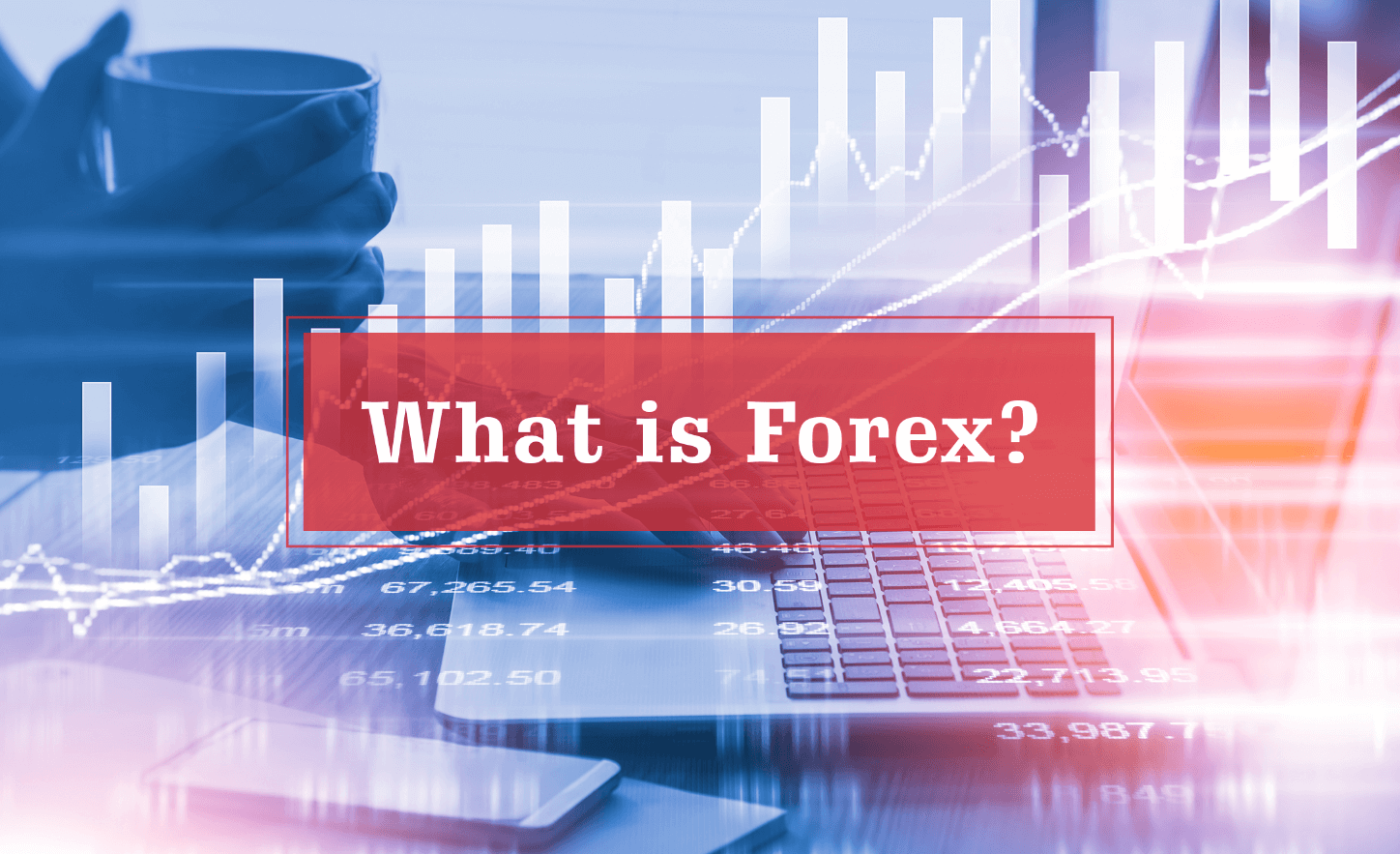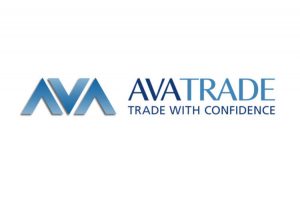Best Australian Forex Brokers in 2024
In the vast realm of forex trading, the right broker can make all the difference. As Australia emerges as a prominent hub for forex trading, the search for the best forex brokers becomes a paramount pursuit for traders seeking reliability, transparency, and optimal trading conditions.
This article sets sail into the world of forex trading in Australia, exploring the top forex brokers that have captured the attention of traders and providing insights into their offerings and advantages.
Compare Top Australian Forex Brokers
What is Forex trading?
What is Forex? This is simply a term that refers to foreign exchange. The foreign exchange market is a market where people trade foreign exchange against one another. Foreign exchange in this regard refers to international currencies. The most widely traded currencies are the US dollars, British Pound, Euros, Japanese Yen, and Australian and New Zealand dollars.

The market operates under a profit and loss price shift that is always evolving when the market is open. In the foreign exchange market, currencies are traded against one another in real-time, and their prices change constantly. On a typical day in the Australian foreign exchange market, trillions of dollars are traded.
You also need to understand that forex trading in Australia is not centralized, similar to what is obtainable in other countries. This allows buyers and sellers to trade with one another over the internet via online platforms provided by agents called forex brokers. Another important point to note is that forex trading Australia is highly liquid. Traders can buy and sell it, and their actions will have very little impact on its value. This is why Forex is one of the most liquid assets in the world.
Top 10 Forex Brokers in Australia in 2024
- FP Markets: An Overview of Trading Excellence. Read the latest review.
- Fusion Markets: Navigating a Transparent Trading Experience.
- IFC Markets: Expanding Horizons with Versatility.
- FXCC Broker: A Bridge to Global Forex Markets.
- BlackBull Markets: Setting New Standards in ECN Trading.
- AvaTrade: Elevating Trading with Innovation and Diversity.
- easyMarkets Broker: Pioneering User-Friendly Trading.
- Fortrade: Empowering Traders with Expertise.
- FXChoice: Tailoring Trading Solutions to Traders.
- Forex.com: Navigating Markets with a User-Centric Approach.
Australian forex trading for beginners
What is a Forex Broker?
A forex broker is a licensed agent in Australia or another country that provides online trading services to forex traders. Brokers provide access to traders to trade on their platform, and as of today, there are many forex brokers in Australia. These brokers may offer the same services, but they have different variations that make their service unique. If you want to make the most of your trading experience, you need to find a broker that offers you the best deals and opportunities possible.
Finding a good broker is one of the important first steps on the road to success as far as forex trading is concerned. Here are some helpful tips to help you identify the right broker.
- Market Coverage: The market coverage refers to the number of currency pairs the broker allows on their platform. Forex is traded in currency pairs such as AUD/NZD, JPY/GBP, EUR/USD, EUR/GBP, and the likes. A broker that offers you more currency pairs is ideal
- Trading fees and conditions: This factor is the most important factor to consider when searching for a very good broker. Brokers charge different rates for the use of their platforms. Some brokers charge more than others for the same things. Some common fees are withdrawal fees, inactivity fees if you don’t use your account, and funding fees to fund your account. If the fees are too much, it will impact how much you make as a profit. Secondly, if the trading conditions are too restrictive, there are certain moves you cannot make in the market, thereby impacting your success rate long before you even start.
- Trading Tools: Forex brokers offer traders trading tools on their platform. These tools are very important for trading. Platforms with advanced, intuitive tools are easier to use and increase your chances of placing successful trades. When searching for a forex broker, make sure you pick one that offers traders a platform with high-tech tools.
- Beyond that, you want a platform that you can easily understand and use. This is why the user-friendly features of the platform are also very important. Furthermore, make sure that the broker has both mobile and desktop trading platform versions. This will allow you to switch from your laptop to your smartphone and back should you need to.
- Minimum Deposits: When you want to start your forex trading in Australia, the forex broker will expect you to make an initial deposit. This initial deposit is your investment cash. Some brokers accept an initial deposit of $10, $50, or $100. Others only accept $200 and above, and some will only allow a deposit of $1000 and above. When searching for a broker, make sure you only register with one whose initial deposit requirement you can afford.
- Deposit/Withdrawal Method: The mode of funding your account and withdrawing your funds is another thing to consider when picking a broker. Some brokers allow direct funding from your bank account while others do not. Make sure you only pick a broker with a method that suits you.
- Regulation/License: Check to see if the forex broker is licensed and by whom. Never trade with unlicensed brokers. If you do this, it will be at your own risk. In Australia, brokers are licensed by ASIC. In Britain, they are licensed by the FCA. Only trade with a licensed broker for the safety of your funds because there are many scams out there.
- Background: You should run a quick check on the broker to better understand where they are coming from. This is easy to do. Simply visit the About Page on the broker’s website to do a quick review. If they are transparent, the website is one of many ways to know, but not the only way.
- Training Resources: The most successful traders are always educating themselves to improve. Learning should be an ever-present attitude if you want to continue to grow. Very good forex brokers understand this; that is why they provide traders who use their platform with training tools like tutorial videos, articles, and webinars to help them improve. Training resources offered to you for free will help you immensely.
- Account/Identity Verification: Your account and identity will have to be verified by the broker, and brokers have different methods. Therefore, you want a broker with a flexible but secure verification process that will safeguard your funds and be easy on you.
Is Forex Trading Legal in Australia?
Forex trading in Australia is indeed legal and well-regulated by the Australian Securities and Investments Commission (ASIC), the country’s financial regulatory authority. Traders in Australia have the opportunity to engage in forex trading with confidence, as the regulatory framework ensures a transparent and secure environment for participants in the foreign exchange market.
Forex Trading Regulation
Trade regulation is very vital. With the rising spate of online scams these days, many have lost, and control loses their investments. As for forex trading in Australia, this is no different. To protect traders from investment and identity theft, national governments have come up with stringent rules and regulations that licensed brokers must abide by to protect the investments of forex traders. Failure to abide by their rules leads to a rejection of a license application or a withdrawal of a previously issued license.
Who is the official regulator of Forex Trading in Australia?
In Australia, the body responsible for forex trading is Australia Security and Investment Commission (ASIC). This body has been in existence for more than a decade, and it is responsible for ensuring that brokers play according to the rules. For example, for a forex broker to be licensed in Australia, ASIC must issue it with a license to ensure that traders’ deposits are secure. ASIC also ensures that the brokers are fully transparent in their dealing with traders who register under them.
ASIC also has a website that lists all licensed brokers operating in Australia. This body is also responsible for handling claims brought against any broker by traders. If a broker is found to have violated the rules or dealt with a trader dishonestly, the broker will be sanctioned.
Another regulatory body is Australia’s Prudential Regulation Authority(APRA) that oversees insurers and banks. Forex brokers work with banks, so some of their activities fall under the purview of APRA.
Maximum Trading Leverage
In Australia, the maximum trading leverage allowed under the law for the trader is 20:1 on gold/silver and forex trading, so brokers must comply with the directive. The leverage for cryptocurrencies is 2:1 and 10:1 for crude oil and liquified natural gas. Indices are 15:1 while stock trading is 5:1. Thus, these bodies maintain sanity in the trading space. They also ensure that beginners with little or no experience in trading are prevented from losing money in large amounts.
Regulatory agencies are very helpful, even for experienced traders. They protect your funds by holding the broker accountable if you suffer a loss due to mismanagement or inappropriate financial actions on their path. This is why you should only trade with a licensed broker.
Some important Forex Trading Terminologies
Here are some important forex terminologies you should know about.
Margin/Leverage
Leverage refers to the amount of money the broker will lend you to add to your funds for trading. Leverage can help you earn more profit, but it can also cause you to lose more. When deciding on a broker to register with, check for the leverage they are willing to offer and how much they charge as leverage commission if any.
Spreads
Spread could either be variable or fixed. Variable spreads are affected by new information, and they are volatile, unlike fixed spreads that are not affected by new information.
Time Zone
The forex market is active for 6 days every week for 24 hours but shuts down on Sundays. The trading period crosses three different trading time zones. These zones are
Asian Time Zone: Sydney Market opens at about 07:00 and 16:00 EST/Tokyo market opens from 09:00 – 18:00 EST
European Time Zone: Open from 17:00 and shuts down by 01:00 EST
US Time Zone: New York Market opens from 22:00 EST – 06:00 EST.
Understanding the different time zones is an all-important prerequisite if you want to be a successful forex trader. If you know when trading hours overlap in Australia between trading sessions, you will know when to enter and exit the market. Learning when the maker is active and inactive and which currency pair to trade is also very important. The first hour after the market opens is crucial because this period will give you a fair idea of how the trading for that day will develop.
Many forex trading platforms provide traders with analytical tools that help them break down sessions into charts to help them understand how these sessions overlap. New data also influence time zones as they break in real-time. Announcements that influence the forex market include
- Interest Rates
- Inflation rates
- Employment/Unemployment Rates
These announcements influence price movement before, during, and after they are made, and all these announcements influence the price.
Signals
Many traders make use of signals to make their moves in the market. If you plan to start trading forex trading Australia, you may want to try using trading signals to your advantage. What are forex signals?
Forex signals are trading recommendations released by expert market analysts to help them place successful trades. Signals are not only from humans, though but from software robots too. Signals contain key information that traders use to enter trades for a given currency pair. The signal will contain a recommendation for the time of trade placement, currency pair, and price. These signals run in real-time and are only valuable for a very short time. The most common means through which traders receive signals are vis
- Social Media
- Text message
- Signal websites
- RSS
There are two main types of forex signals. They are the manual and Automated Signals. Manual Signals are more cumbersome and demand your rapt attention for a long time. This type is not obtained from a 3rd party but based solely on your judgment as a trader. It involves the effort of a human who analyzes the market in real-time as it shifts, consolidates, or becomes volatile. Manual signals have their advantages, though, since humans can analyze data that machines cannot. Manual signals rely on skill, experience, and attention to detail.
Automated signals are based on the interpretation of market forces by software. The software is programmed to look for certain kinds of market opportunities, and the data is then analyzed based on injected algorithms and forwarded to the user. The advantage that automated signals have over manual signals is down to volume. Robot software can interpret more data than humans can and quickly too. Therefore, most expert traders recommend the use of both manual and automated.
Beware of Scams
When searching for forex brokers to trade Forex with, you have to be mindful of scams because they are everywhere. Avoiding scams is a must if you want to be successful at forex trading. However, there is one thing we need to set straight. The problem is not with forex trading per se since forex trading is not a scam. The scam has to do with the fraudulent practices of certain brokers. So when searching for a platform to trade on, there are certain things to keep in mind.
Terms and Conditions: Do not be in a hurry to pick a broker. Take your time to read the broker’s terms and conditions first before you proceed. These terms may appear confusing and long but dissect them with an analytical eye. If the legal language is too complex for you, get the opinion of a legal expert to help you out.
Regulations: Never trade with a broker that does not hold a license. When looking to do forex trading in Australia, look for brokers registered with ASIC that hold a trading license or licenses issued by other international regulators like the FCA of the UK or CySEC of Cyprus. Licensed brokers operate by the highest ethical standards.
Cold Calling: One red flag to note is when you receive a call or an email from a broker advertising its service to you. This is a huge no, and such a broker should be reported if not abandoned. Reputable brokers do not cold call people out of the blue.
Marketing: Notice how the broker markets its services. Profits are never guaranteed when it comes to Forex trading Australia just as nothing is guaranteed in life. If the broker is guaranteeing you profit beyond your wildest dreams, then watch it. You may be walking into a scam.
Site Diversion: If you visit the supposed website of the broker and it diverts to another website with a different URL, you might want to watch it. That website may actually be a spammed website. No reliable broker will divert its domain name to a different name.
Account Management: Every move, every activity, and every action carried out can lead to a profit or a loss. With this in mind, understand that you should have maximum right and authority over what you do with your account even though the account is opened with the broker. When you lose money, the broker gains. When you gain money, the broker also gains. To this end, you cannot expect the broker to make decisions that will be in your best interest. So, therefore, you should have ultimate control of your account.
Price Transparency: The broker you work with should always be transparent about the price benchmark for all assets, but these benchmarks should be similar to the general market prices influenced by market forces. Brokers that are not transparent with their pricing will likely scam you of some dollars every now and then. Avoid them.
Trading Styles
When preparing to do forex trading in Australia, you need to be aware of the different trading styles and strategies. Some websites and authors will advertise their strategies as the best strategies to guarantee successful forex trading, but this is not true. Authors and websites that make such claims are as dishonest as brokers that promise guaranteed wins. No matter how good a trading strategy or style may be, it has its limitations. As far as forex trading in Australia is concerned, NOTHING IS GUARANTEED.
However, there are certain styles and strategies that have become popular due to their ease of use and increased chances of success. We review some very good strategies and styles that work.
- Scalping: Scalping is one very popular trading style. This style works with very short time frames of 5,10,15,30 minutes and not more than an hour in most cases. This style involves beating the offer spread quickly to nick out a few profits before the opportunity window closes. This strategy or style, like some, prefer to call it, is one method used by experienced traders to make quick profits within a relatively short time. One very common package ideal for scalping is the MetaTrader4 Supreme Edition.
- Day Trades: This strategy involves setting the bars to one or two hours per trade. A trader who uses this method exits the market before the end of the day before their price point is adversely affected by overnight moves. Trade opportunities last no more than 24 hours.
- Positional Trading: This is a long-term style that follows extended trends. Traders who use this method are simply looking for price shifts and movement in the market. They mostly look for the end of the day charts over an extended period. This style or strategy requires discipline and patience with a good knowledge of market fundamentals.
- Swing Trading: Swing traders hold a certain position for several days with a desire to make short-term profits when the market shifts.
Note: There are so many trading styles/strategies that you can use, but the ones mentioned above are some of the most popular ones. Take your time to pick a strategy that works for you. You can also combine strategies for better results.
Forex Trading in Australia Do’s and Don’ts
As a new forex trader, you need to know some of the do’s and don’ts so you can preserve your investment and not lose money. The pillar of success is to understand when to enter the market and when to exit it. You also need to know what to do and when trading forex. Here are some of the essential Forex do’s and don’ts.

Forex Do’s
- A new trader should only enter the maker when it shows strong Bullish or Bearish trends. When it is Bullish, he should sell, and when it is Bearish, he should buy. Entering the market when the trend is strong is the best.
- Always have your loss and gain ratio at the back of your mind when making your moves in the market.
- Understand the use of the Fibonacci Analysis tool to better help you enter and exit the market in light of market fluctuations
- Combine your manual analysis with trading tools and signals curated by trading robots for better results
- Take your time to study charts and trading patterns as well as trend reversals before you enter the market.
Forex Don’ts
- Avoid revenge trading. Don’t be in a hurry to enter the market as soon as you lose money in a bid to make up for your losses. Doing so may likely lead to more losses. Instead, wait for the market to calm down before you enter again.
- Never enter the market when it is very volatile. Market volatility refers to severe upswings and downswings. A volatile market is the easiest way to lose money when doing forex trading in Australia. Wait for the market to calm down first.
- Avoid making impulsive trades in light of new information. Many traders go into trades after hearing a piece of news or a rumor, and they do not test their hypothesis using technical tools. This is wrong. While you may make money from this approach, it is not a sustainable trading pattern. You may win sometimes, but you will suffer losses in the long run.
- Do not be greedy when doing forex trading Australia. Before you place a trade, apply all the principles of safe trading and test your hypothesis against all the fundamental and technical tools at your disposal. We also advise traders to have a profit benchmark for the day, week, or month depending on your trading timeframe. Once you make the profit, you plan for yourself, close shop for that day, and walk away. The lure of making more profit has led to the ruins of many traders.
- Have realistic projections. Forex is not a get-rich-quick scheme. If you approach it that way, you will end up in ruins. People who are successful at forex trading in Australia are very meticulous in their approach. Successful forex trading is all about finding the right balance between winning and losing. You will never win all the time, but your plan should be to maximize your wins and minimize your losses as much as possible. This is what successful forex traders do.
Forex Trading Australia FAQs
What is Forex Trading?
Forex Trading is the act of buying and selling currencies online. Currencies are usually traded in pairs, e.g., EUR/USD, USD/CAD, USD/CHF, GBP/USD, AUD/USD, NZD/USD.
What is a forex broker, and why do I need one?
A forex broker acts as an intermediary between traders and the foreign exchange market, providing access to trading platforms, executing trades, and offering market analysis.
How do I choose the best forex broker for my trading needs?
Consider factors such as trading platforms, spreads, execution speed, regulatory compliance, customer support, and available financial instruments when choosing a forex broker.
Are all the listed forex brokers regulated in Australia?
While some of the listed brokers are regulated by Australian authorities, it’s essential to verify the regulatory status of each broker before trading.
Can I trade various currency pairs and other financial instruments with these brokers?
Yes, the listed brokers typically offer a range of currency pairs and other financial instruments, including commodities, indices, and cryptocurrencies.
What trading platforms do these brokers offer?
These brokers offer a variety of trading platforms, including proprietary platforms and popular options like MetaTrader 4 and MetaTrader 5, catering to diverse trader preferences.
Final Word
As the world of forex trading continues to evolve, Australia’s forex brokers have risen to the occasion, offering traders a multitude of choices and opportunities. By selecting the best forex broker tailored to individual preferences and trading strategies, traders can set sail with confidence, navigating the forex seas with the assurance of reliability, transparency, and optimal trading conditions.
Embracing the innovation and diversity of Australia’s premier forex brokers, traders can steer their course toward success, harnessing the power of the forex market to achieve their financial aspirations.









